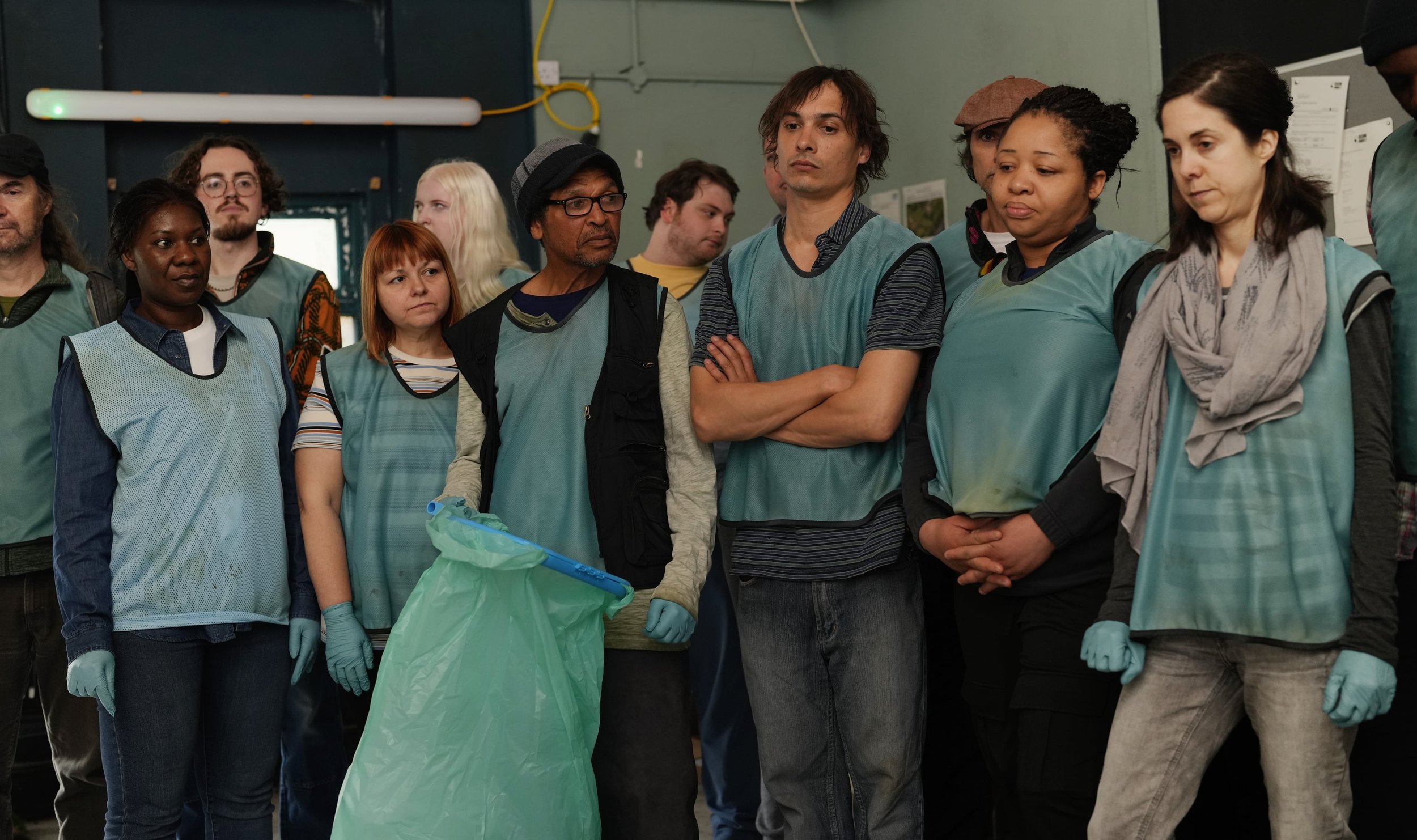‘Urchin’ Review
The actor-turned-director track record is one of the spottier ones in filmmaking. There are those who spend years in front of the camera, and when they decide to take the helm themselves, it’s baffling how little it seems they’ve learned. There are also those with very little experience who surprisingly turn in work that seems far too assured to believe they’ve only been acting for a decade. Such is the case with Harris Dickinson’s Urchin—an incisive directorial debut that is energetic and soulful. Confident and assured direction drives forward a depiction of cyclical rehabilitation and the failures of a system expected to assist those left behind. Through a compassionate lens toward those who fall between the cracks of society, Dickinson provides Urchin’s star, Frank Dillane, with material for a delicate portrayal of substance abuse that draws from cinematic influences both small and large.
Dillane stars as Mike, whose drunken nights and drug-fueled benders have left him homeless for the past five years and struggling to make his life any better than it is currently. His languid toiling away on the streets of London comes to a head when a fellow addict, Nate (Dickinson), steals his wallet and what little money he has left. It’s not the confrontation with Nate that sets Mike on a new path, but a random flash of violence towards Simon (Okezie Morro), a sympathetic bystander, that leads Mike to prison and then places him within a rehabilitation program. To reintegrate into society, Mike is assisted by Nadia (Buckso Dhillon-Woolley), who provides him with a place to stay at a hostel and secures him a job in a hotel’s kitchen before leaving him to fend for himself.
The problem that arises for Mike is not that he’s unwilling to make the necessary changes to create a better life for himself; it’s that Mike lacks adequate support to keep him on track for success. It’s a problem that comes through in the works of Mike Leigh and Sean Baker, both of whom seem to have left a significant imprint on Dickinson’s artistic sensibilities. The Safdie Brothers, as well, whose influence can be felt in both the characterizations and the score by Alan Myson. Characters are left on the fringes of society. When they get that opportunity to pick themselves back up again, they often squander it or are held back by a system that does not allow for upward mobility. The momentary respites from Mike’s spiralling are fleeting, and even the film frequently suggests in those moments that Mike might not be prepared for the changes necessary.
It comes back to that brief moment of violence against a bystander who offers assistance to Mike in a time of need, or the stretching of what a friend can do for you when you show signs of slipping back into your old ways. Some of these issues are Mike’s fault, and some are not. Dillane portrays Mike as someone who appears to have the capacity for empathy, but is guarded most of the time and tends to become hostile when confronted. It’s a subtly nuanced performance from Dillane. The pockets of happiness in Mike’s day-to-day life can light up the scene, and Dillane’s vulnerability within the role lets the audience in to a character who won’t let anyone else in enough to help.
However, the other issue is that not every form of help is sustainable. Dickinson’s screenplay portends a cyclical nature to substance abuse and rehabilitation, and at the heart of it is a system not built to go the entire way with its patients. If you perform well within the program, it works; however, if you start to fail, there are limitations to how it can benefit you. When the problem cuts deeper than merely having access to resources, it’s easy to see how people can get swallowed up by a void and comforted in narcotics and alcohol. The way this is portrayed in Urchin is not through peaks and valleys that signal incoming highs and lows, but rather through momentary lapses that indicate how easily those valleys can become canyons that are difficult to surmount. Josée Deshaies’s intimate cinematography captures an openness surrounding Mike that is troubled by how quickly the camera glides around the scene or trembles during conflict. There’s never a sense of stability, but there’s always a sense of possibility within each frame.
Urchin is a quiet directorial debut. It aches through virtually every image, but it is rarely ever flashy or pointed in its critiques. There’s a subtlety that Dickinson wields that fleshes out the world around Mike, but centers itself on someone going through the motions of healing. It can be slightly tedious, but the tedium is the point. How easy it is for that tedium to infect your everyday life and force you to slip back into something less structured—even if that structure is something you do genuinely crave. Dickinson’s influences are worn firmly on his debut’s sleeve, but he doesn’t rest on simply evoking the texture and feel of past directors’ works. Instead, Urchin expands and refines itself to present a memorable portrait of an individual trapped in eternal suffering, reflecting an ongoing social welfare crisis that can be found in many cities.


